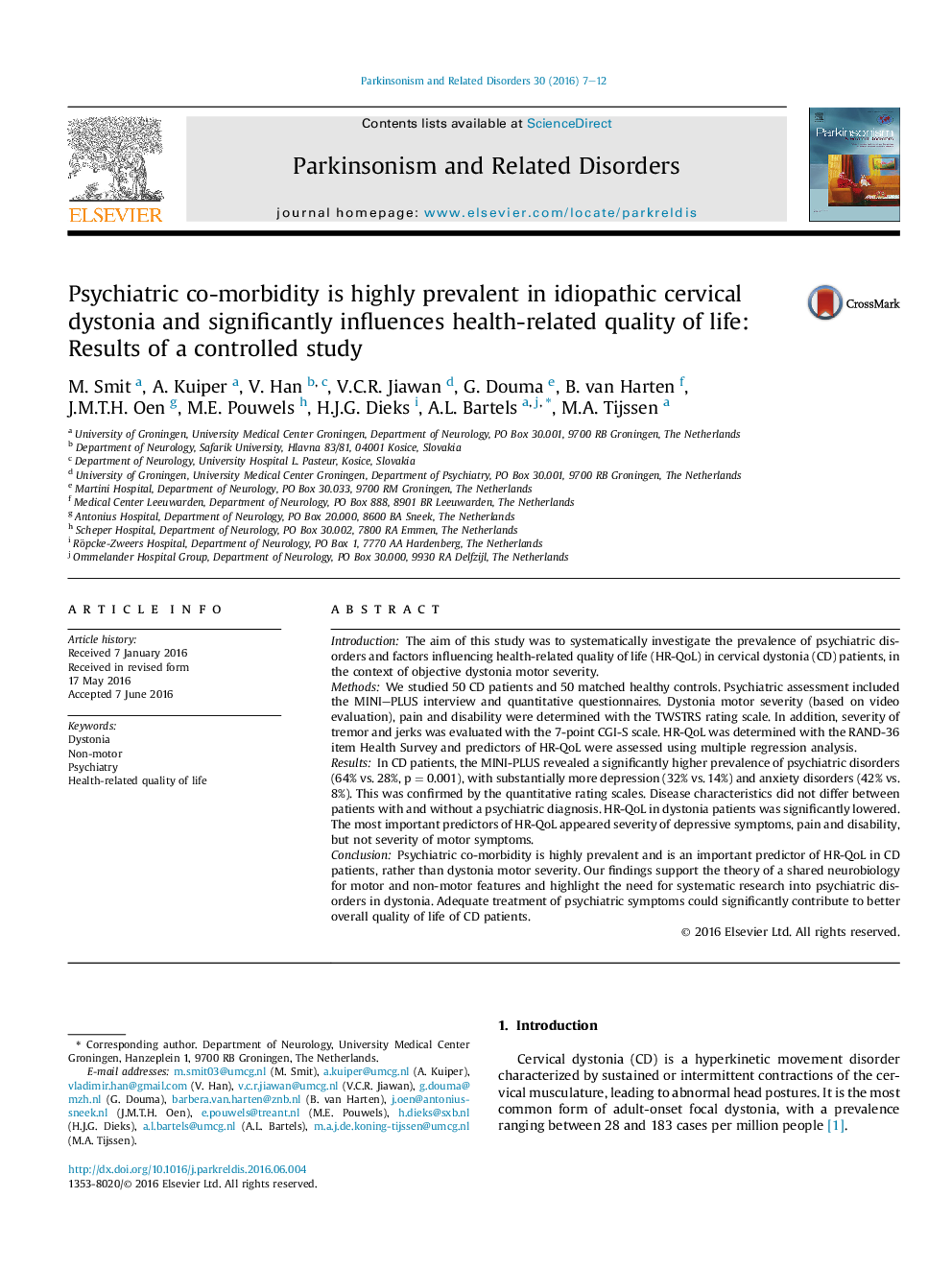| کد مقاله | کد نشریه | سال انتشار | مقاله انگلیسی | نسخه تمام متن |
|---|---|---|---|---|
| 1920215 | 1535819 | 2016 | 6 صفحه PDF | دانلود رایگان |
• Psychiatric co-morbidity is highly prevalent in cervical dystonia patients.
• HR-QoL in CD patients was significantly lowered compared to healthy controls.
• Predictors of HR-QoL were severity of depressive symptoms, pain and disability.
• Severity of motor symptoms did not influence HR-QoL.
IntroductionThe aim of this study was to systematically investigate the prevalence of psychiatric disorders and factors influencing health-related quality of life (HR-QoL) in cervical dystonia (CD) patients, in the context of objective dystonia motor severity.MethodsWe studied 50 CD patients and 50 matched healthy controls. Psychiatric assessment included the MINI–PLUS interview and quantitative questionnaires. Dystonia motor severity (based on video evaluation), pain and disability were determined with the TWSTRS rating scale. In addition, severity of tremor and jerks was evaluated with the 7-point CGI-S scale. HR-QoL was determined with the RAND-36 item Health Survey and predictors of HR-QoL were assessed using multiple regression analysis.ResultsIn CD patients, the MINI-PLUS revealed a significantly higher prevalence of psychiatric disorders (64% vs. 28%, p = 0.001), with substantially more depression (32% vs. 14%) and anxiety disorders (42% vs. 8%). This was confirmed by the quantitative rating scales. Disease characteristics did not differ between patients with and without a psychiatric diagnosis. HR-QoL in dystonia patients was significantly lowered. The most important predictors of HR-QoL appeared severity of depressive symptoms, pain and disability, but not severity of motor symptoms.ConclusionPsychiatric co-morbidity is highly prevalent and is an important predictor of HR-QoL in CD patients, rather than dystonia motor severity. Our findings support the theory of a shared neurobiology for motor and non-motor features and highlight the need for systematic research into psychiatric disorders in dystonia. Adequate treatment of psychiatric symptoms could significantly contribute to better overall quality of life of CD patients.
Journal: Parkinsonism & Related Disorders - Volume 30, September 2016, Pages 7–12
